Table of Contents
- Introduction
- Protein Requirements for Athletes
- Benefits of Protein for Athletes
- Good Sources of Protein
- Optimal Protein Timing
- Debunking the Protein Myth
- Summary
Introduction
Welcome to our guide on understanding the recommended daily protein intake for athletes. In this article, we will explore the importance of protein for athletes, how much protein they should consume, the benefits it offers, debunk some common myths, and more.
Protein Requirements for Athletes
Athletes require higher protein intake than sedentary individuals due to the demands of their training. We will delve into the specific protein recommendations for various types of athletes, taking into account factors such as weight, training intensity, and goals.
As an athlete, it is important to pay attention to your protein intake in order to support muscle recovery, repair, and growth. Protein is a vital macronutrient that helps build and repair tissues, as well as produce enzymes and hormones.
The exact protein requirement for each athlete can vary based on factors such as body weight, training intensity, and specific sport. However, a general guideline suggests that athletes should consume between 1.2 to 2 grams of protein per kilogram of body weight per day. This range ensures an adequate supply of protein to support muscle protein synthesis without excessive intake that could strain the kidneys.
To calculate your protein intake, multiply your body weight in kilograms by the desired protein range (e.g. 1.5g/kg). For example, a 70kg athlete would aim to consume 105 grams of protein per day (70kg x 1.5g/kg = 105g/day). Distribute this protein intake evenly across meals and snacks throughout the day for optimal utilization and absorption.
Good sources of protein for athletes include lean meats (such as chicken, turkey, and fish), eggs, dairy products, legumes, tofu, nuts, and seeds. It's essential to focus on quality protein sources that also provide essential amino acids, which are the building blocks of protein in the body.
Keep in mind that protein alone is not the only important factor for athletic performance. A well-balanced diet rich in carbohydrates, healthy fats, vitamins, and minerals is necessary to meet overall nutritional needs and support optimal performance.
Remember, it's always recommended to consult with a registered dietitian or sports nutritionist to determine the precise protein requirements based on your individual needs and goals.
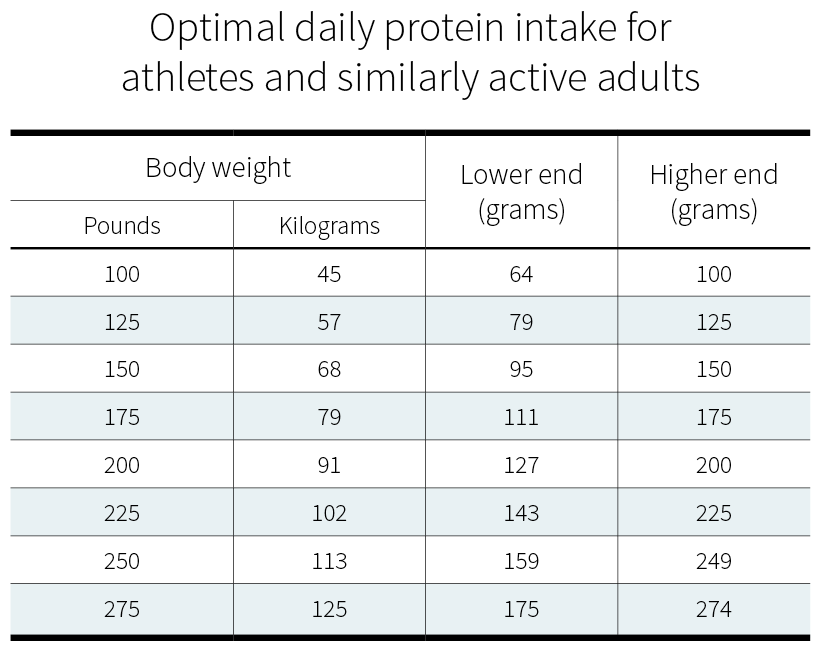
Benefits of Protein for Athletes
Protein plays a crucial role in muscle growth, repair, and recovery. We will discuss how consuming adequate protein helps athletes optimize their performance, prevent injuries, and maintain overall health.
Protein is an essential nutrient for athletes as it plays a crucial role in muscle growth, repair, and recovery. Here are some key benefits of protein consumption for athletes:
- Muscle Development: Protein provides the necessary building blocks (amino acids) that aid in the development and growth of muscles. Consuming adequate protein allows athletes to increase their muscle mass and improve their strength.
- Repair and Recovery: Intense physical activities, such as training and competing, can lead to muscle damage. Protein helps repair these damaged muscle tissues and aids in their recovery, enabling athletes to bounce back faster and perform better in subsequent sessions.
- Enhanced Performance: Protein consumption contributes to improved athletic performance. It helps maintain a positive nitrogen balance in the body, essential for synthesizing new proteins and ensuring proper muscle function. This leads to increased power, endurance, and overall athletic ability.
- Appetite Control and Weight Management: Protein-rich foods are known to provide a feeling of fullness, helping athletes control their appetite and reduce cravings. This can be beneficial for maintaining a healthy body weight or supporting weight loss goals while ensuring sufficient nutrient intake.
- Optimal Immune Function: Regular protein intake supports a healthy immune system, vital for athletes to maintain overall well-being. Adequate protein consumption helps in producing antibodies, enzymes, and other immune system components that defend against illness and infection.
How Much Protein Should an Athlete Consume per Day?
The recommended daily protein intake for athletes depends on various factors such as body weight, activity level, training intensity, and specific goals. Generally, it is suggested that athletes consume around 1.2 to 2.0 grams of protein per kilogram of body weight. However, individual needs may vary, and it is best to consult with a sports nutritionist or healthcare professional to determine the exact protein requirements based on personal circumstances.
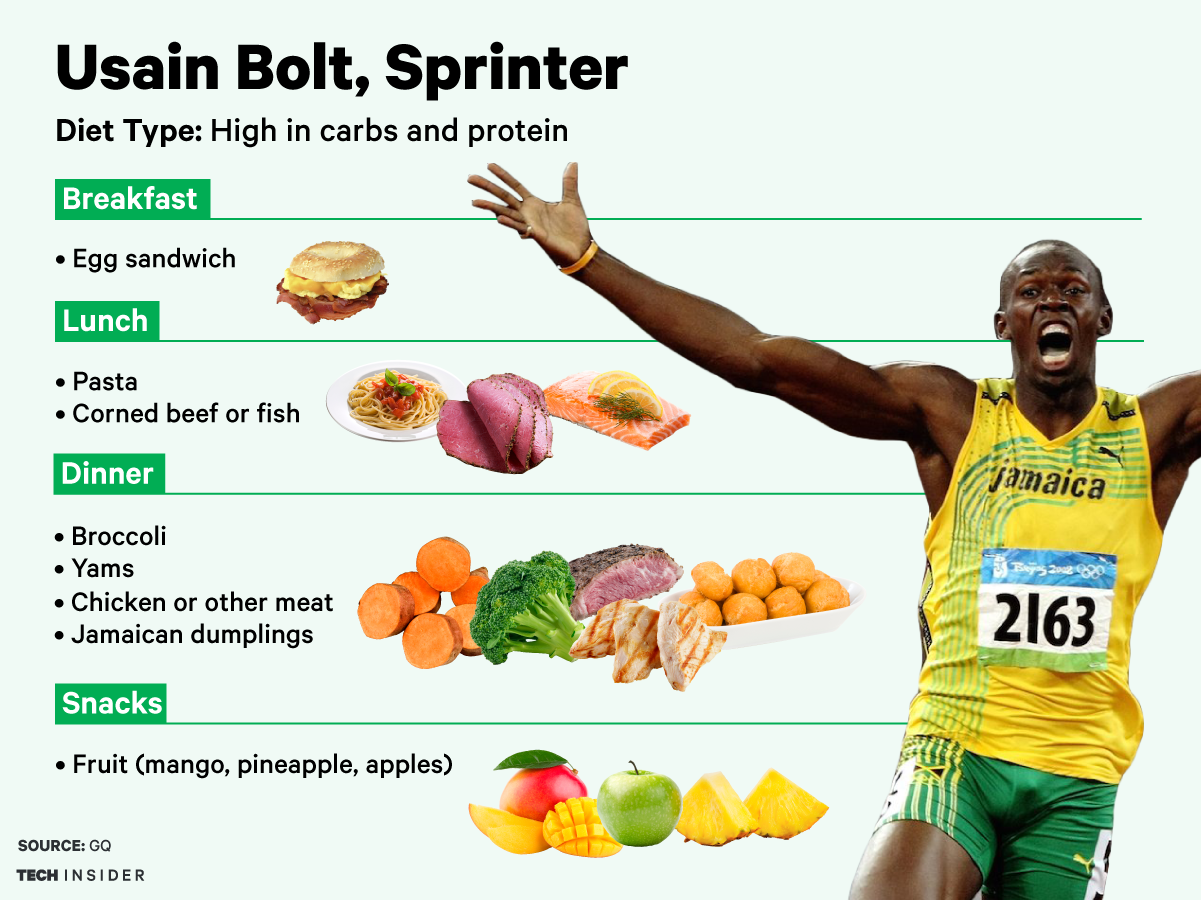
Good Sources of Protein
Discover a wide range of excellent protein sources that athletes can include in their diet. From lean meats and fish to plant-based alternatives, we will provide options suitable for different dietary preferences.
Protein is an essential nutrient for athletes as it helps repair and build muscle tissues, support proper immune function, and aid in recovery after intense workouts. It is crucial to include sufficient amounts of protein in their daily diet. Let's explore some good sources of protein and understand how much an athlete should consume per day.
Good Sources of Protein
There are various sources of protein that athletes can incorporate into their diet. Some of the best sources include:
- Lean meats like chicken, turkey, and lean cuts of beef.
- Fish and seafood, which are not only high in protein but also provide essential omega-3 fatty acids.
- Dairy products such as milk, yogurt, and cheese. Opting for low-fat or Greek yogurt is recommended.
- Legumes like lentils, chickpeas, and beans, which are not only rich in protein but also high in fiber and other essential nutrients.
- Nuts and seeds, including almonds, walnuts, chia seeds, and flaxseeds. These are great plant-based sources of protein.
- Eggs, which are a versatile and affordable protein source.
Athlete's Daily Protein Consumption
The recommended daily protein intake for athletes varies depending on their individual factors such as weight, training intensity, and specific sport. Generally, athletes should aim to consume approximately 1.2 to 2 grams of protein per kilogram of body weight.
For example, if an athlete weighs 70 kilograms, their daily protein intake should range between 84 and 140 grams.
It is important for athletes to distribute their protein consumption evenly throughout the day and include protein-rich foods in each meal. This allows for optimal muscle protein synthesis and recovery.
In conclusion, athletes must prioritize their protein intake to support muscle growth, recovery, and overall performance. By incorporating a variety of good protein sources into their daily diet and meeting their recommended protein requirements, athletes can enhance their athletic performance and achieve their fitness goals effectively.
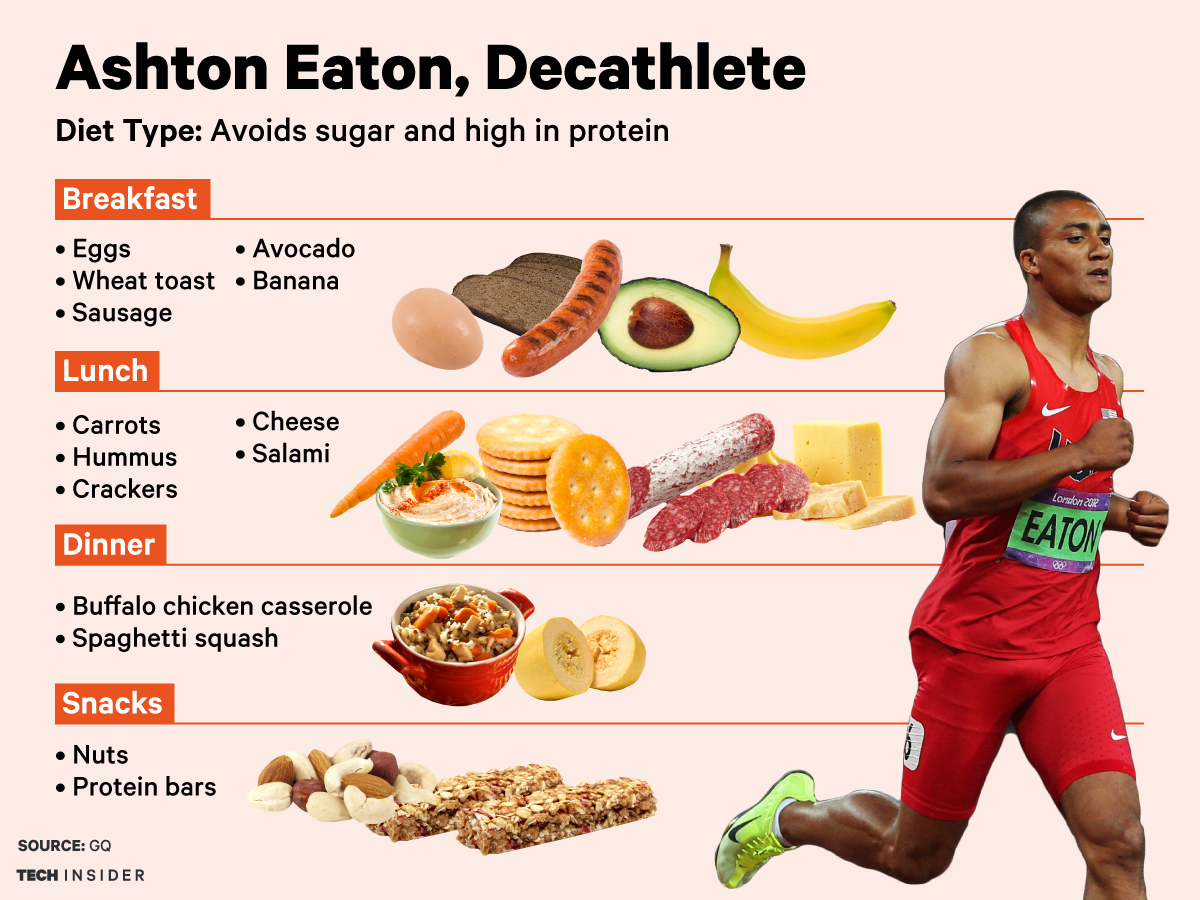
Optimal Protein Timing
The timing of protein intake is vital for athletes to maximize its benefits. We will explain the significance of pre-workout, post-workout, and before-bed protein consumption, as well as offer suggestions on portion sizes.
Protein intake plays a crucial role in an athlete's diet, as it helps repair and build muscle tissues, aids in recovery, and supports overall performance. The amount of protein an athlete should consume per day depends on various factors such as training intensity, body weight, and specific goals.
A general guideline for athletes is to consume 1.2 to 2 grams of protein per kilogram of body weight. For example, a 70-kilogram athlete would aim for a daily protein intake between 84 to 140 grams. However, individual needs may vary, and it's essential to consult with a registered dietitian or sports nutritionist to determine the optimal protein requirements based on specific needs.
In addition to the total protein intake, the timing of protein consumption also plays a crucial role in maximizing its benefits. To optimize protein utilization, athletes should focus on three key timing windows:
- Pre-workout: Consuming a protein-rich meal or snack 1 to 2 hours before a training session can help provide amino acids for muscle repair and prevent muscle breakdown during exercise.
- Post-workout: Consuming protein within 30 minutes to an hour after exercise is essential to promote muscle recovery, enhance glycogen replenishment, and facilitate muscle protein synthesis.
- Distributed intake: Spreading protein intake evenly throughout the day, including meals and snacks, ensures a continuous supply of amino acids for optimal muscle protein synthesis and repair.
It's important to choose high-quality protein sources such as lean meats, poultry, fish, dairy products, eggs, legumes, and plant-based proteins. Athletes should also consider individual dietary preferences, any existing food allergies, and specific training requirements while planning their protein intake.
Remember, achieving optimal protein timing and consumption is a key component of an athlete's nutrition plan, supporting their training, recovery, and overall athletic performance.
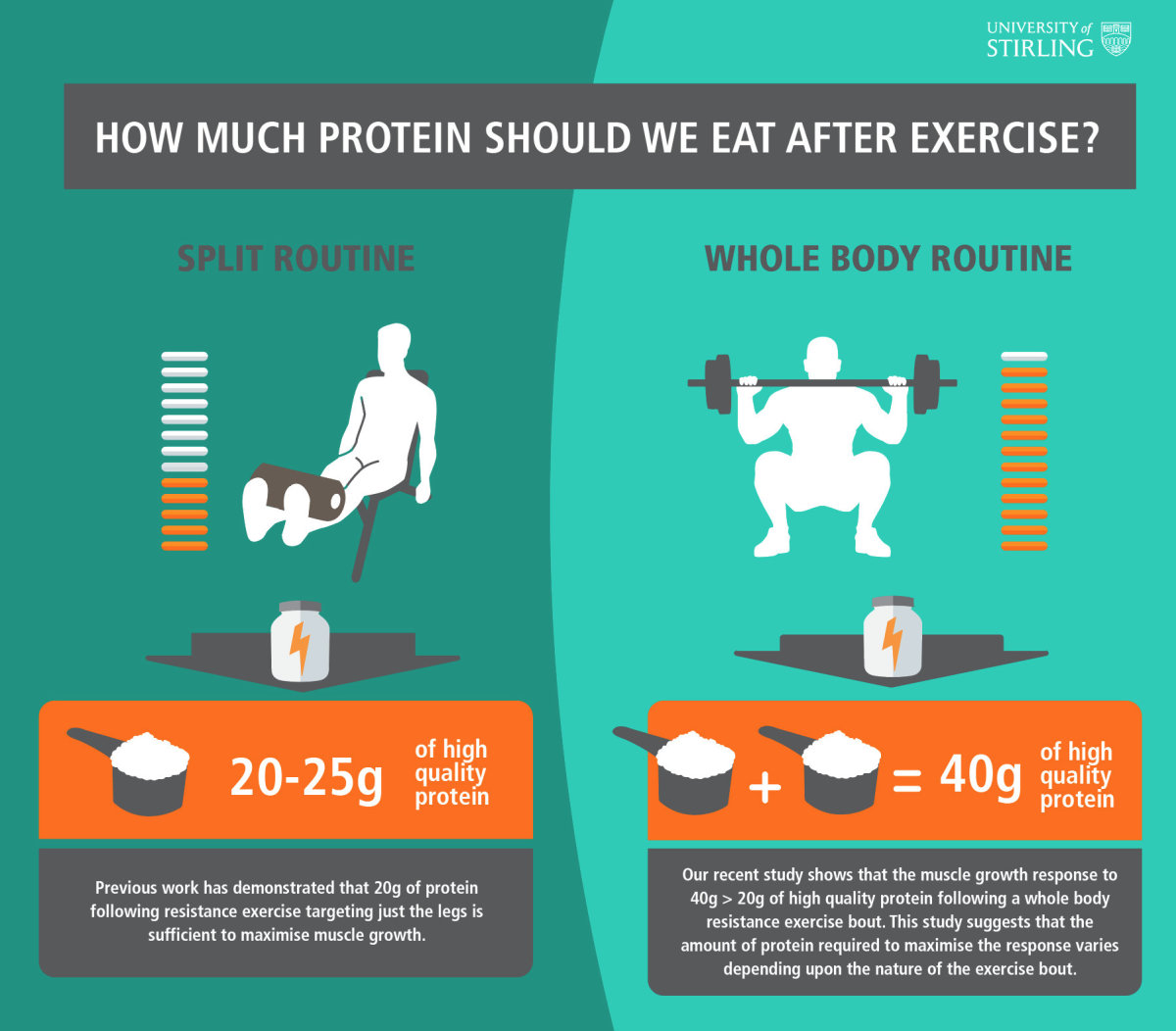
Debunking the Protein Myth
There are various misconceptions surrounding protein intake among athletes. We will address common myths, such as excessive protein harming the kidneys, and present scientific evidence to dispel these misunderstandings.
When it comes to athletic performance and building muscle, the protein myth has been widely circulated. Many athletes believe that consuming excessive amounts of protein is crucial for maximizing their performance and achieving optimal gains. However, research suggests that this belief may be unfounded.
The Truth About Protein Requirements for Athletes
Contrary to popular belief, athletes do not need astronomical amounts of protein in their daily diet. The recommended protein intake for athletes varies based on factors such as body weight, activity level, and training goals. Generally, a daily intake of 1.2-2.0 grams of protein per kilogram of body weight is considered sufficient for most athletes.
The Role of Protein in Athletic Performance
Protein plays a crucial role in muscle repair and growth. It helps to rebuild and strengthen muscles after intense workouts. However, consuming excessive protein does not necessarily translate to greater muscle gains. Once the body has consumed an adequate amount of protein, any excess is simply excreted or used as energy.
The Importance of a Balanced Diet
While protein is essential for athletes, it should not overshadow the importance of a well-balanced diet. Carbohydrates and fats are also crucial sources of energy for athletic performance. Neglecting these macronutrients in favor of excessive protein intake can lead to an imbalanced diet, which may have negative consequences on overall health and performance.
Consulting a Professional
To determine the optimal protein intake for your specific athletic goals, it is recommended to consult with a registered dietitian or a sports nutritionist. These professionals can assess your individual needs, considering factors such as training intensity, sport type, and personal preferences, and provide tailored dietary guidance.
Remember, while protein is undoubtedly important for athletes, consuming excessive amounts based on the protein myth may not yield significant benefits. A well-rounded diet, appropriate energy intake, and sufficient overall nutrition are essential for maximizing athletic performance and achieving optimal gains.
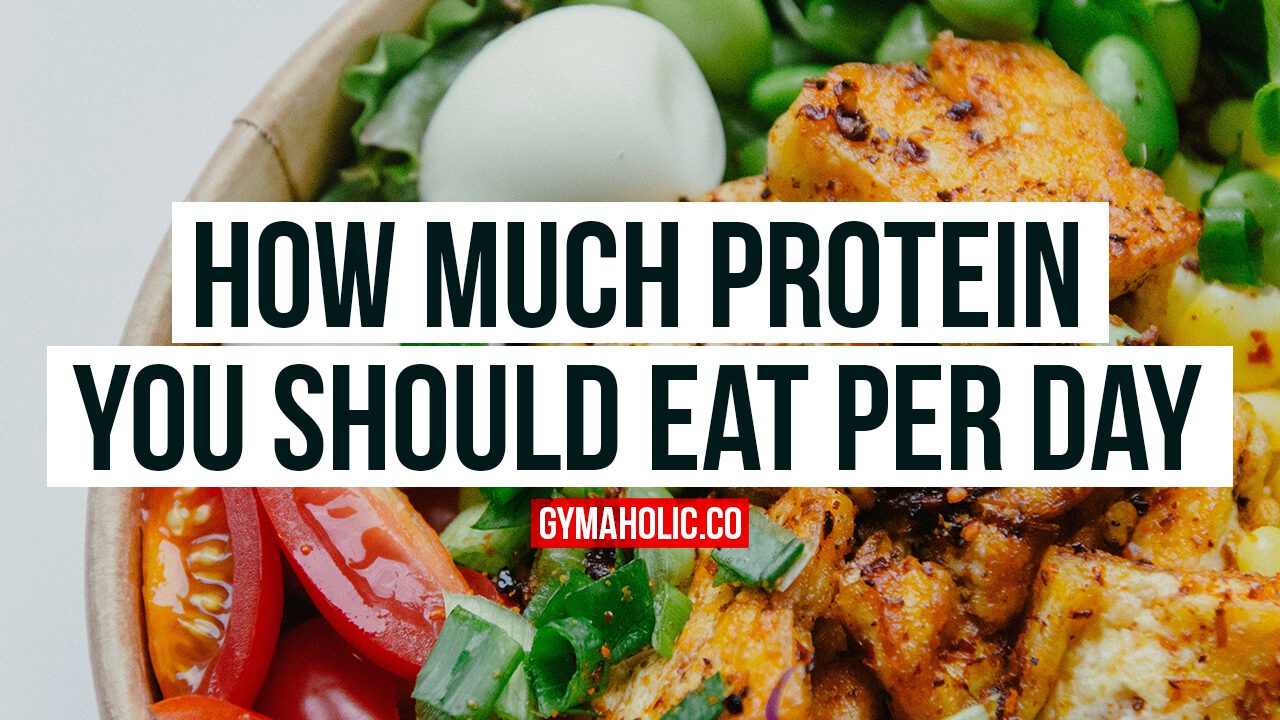
Summary
In this article, we have covered the importance of protein intake for athletes and discussed their specific requirements based on individual factors. We have highlighted the benefits of consuming enough protein, provided good sources of protein, emphasized the significance of proper timing, and debunked common protein-related myths.
Athletes require an increased protein intake to support muscle growth, repair, and recovery. The recommended protein consumption for athletes varies based on factors such as training intensity, sport type, and body weight. Here is a general guideline:
Endurance Athletes:
- 1.2 to 1.4 grams of protein per kilogram of body weight per day.
- This range is suitable for runners, cyclists, swimmers, and other endurance-focused athletes.
Strength and Power Athletes:
- 1.4 to 2.0 grams of protein per kilogram of body weight per day.
- Strength training, weightlifting, and sports requiring explosive movements fall into this category.
It is important for athletes to distribute their protein intake evenly throughout the day and include a variety of protein sources such as lean meats, fish, dairy, eggs, legumes, and plant-based proteins. Additionally, individualized advice from a nutritionist or sports dietitian can help determine precise protein requirements based on personal goals and training needs.

Key Takeaways
- Athletes need higher protein intake than sedentary individuals.
- Protein supports muscle growth, repair, and recovery.
- Good protein sources include lean meats, fish, and plant-based alternatives.
- Optimal timing of protein consumption maximizes its benefits.
- There are misconceptions surrounding protein intake among athletes.
FAQ
Q: What happens if athletes consume inadequate protein?
A: Insufficient protein intake can lead to muscle loss, slower recovery, decreased strength, and impaired performance.
Q: Can athletes rely solely on plant-based protein sources?
A: Yes, plant-based proteins can fulfill the protein requirements of athletes, but it may require careful planning and diversification of protein sources.
Q: Should protein shakes replace whole food protein sources?
A: While protein shakes can be convenient, whole food protein sources provide additional essential nutrients, such as vitamins and minerals, which are beneficial for athletes.
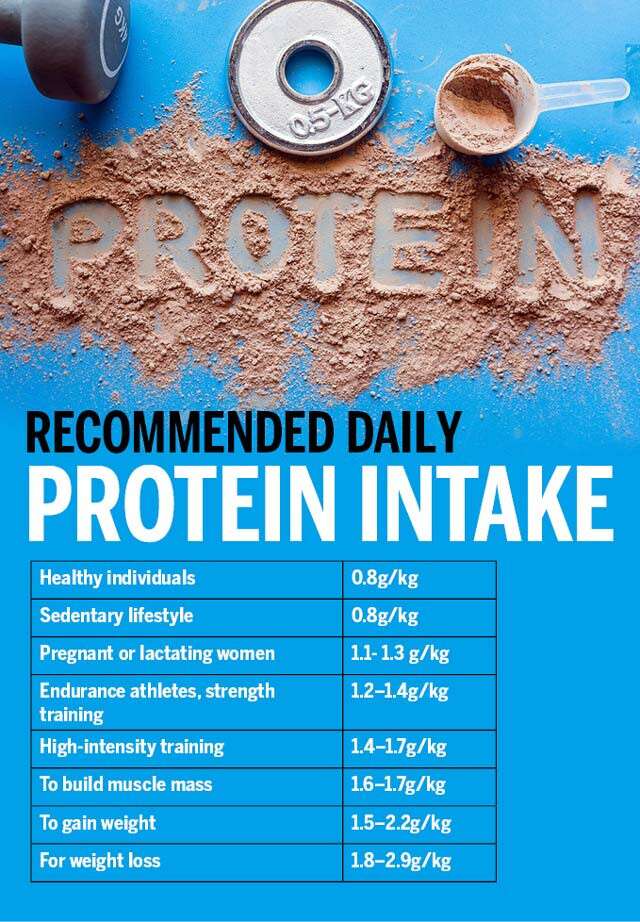


Recent Comments